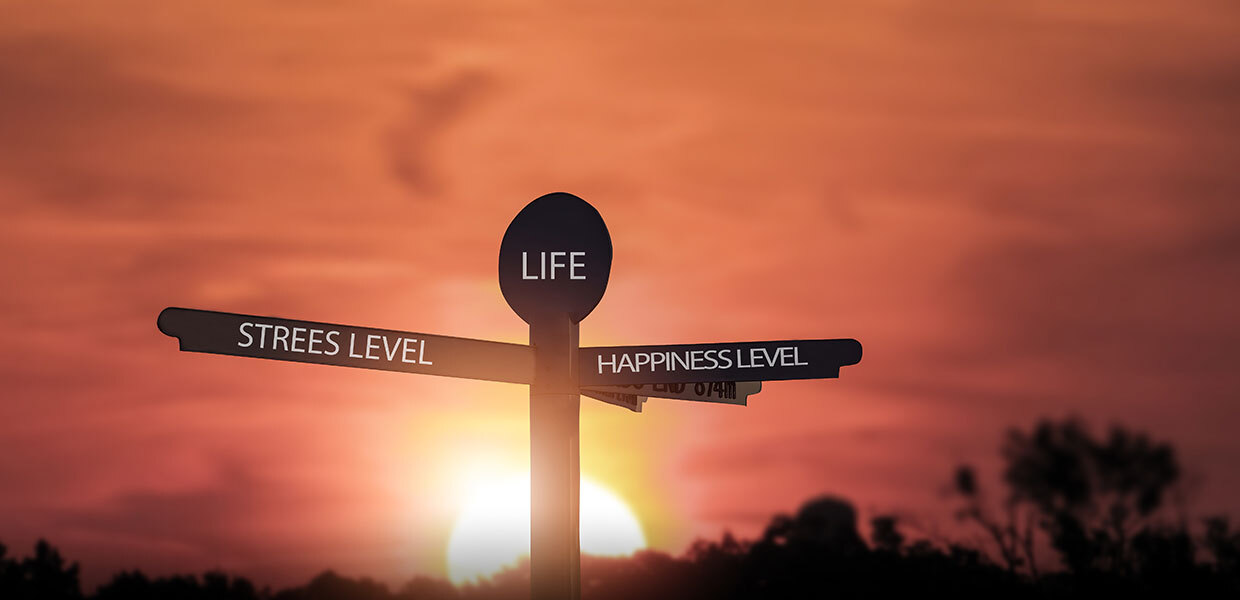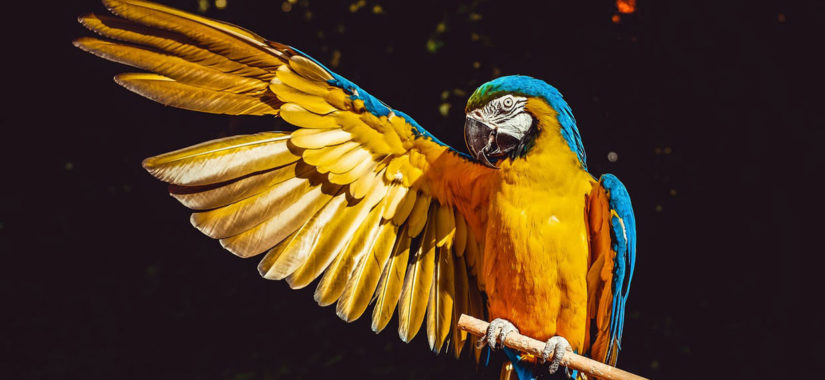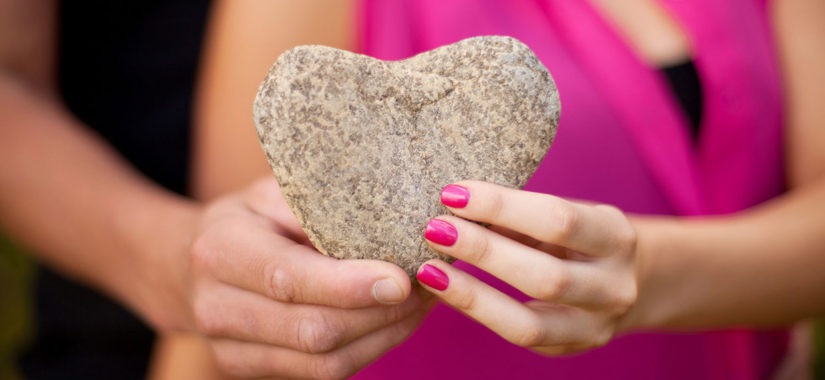Top 5 Natural Remedies for Anxiety and Stress in 2023
In today’s fast-paced world, anxiety and stress are becoming more and more common. As a result, many people are seeking natural remedies for these issues to avoid the potential side effects of medication. In this article, we’ll explore the top 5 anxiety relief herbs & plants in 2023, and discuss how these natural herbal solutions can provide relief.
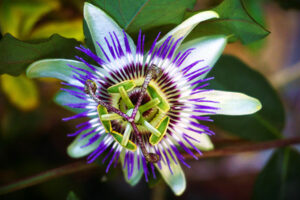 1. Passionflower (Passiflora Incarnata): A Powerful Natural Herbal Remedy for Anxiety
1. Passionflower (Passiflora Incarnata): A Powerful Natural Herbal Remedy for Anxiety
Nature herbal treatments, like passionflower, have been utilized throughout history to provide relief for various ailments and help people heal naturally. Passionflower (Passiflora incarnata), in particular, has a long-standing reputation as a natural remedy for anxiety and insomnia. Native to the southeastern United States, Central, and South America, this beautiful, climbing vine produces intricate flowers and edible fruit.
How Passionflower Works to Reduce Anxiety
Clinical studies have shown that passion flower works by increasing the levels of gamma-aminobutyric acid (GABA) in the brain. GABA is a neurotransmitter that plays a crucial role in regulating the nervous system and promoting relaxation. By increasing GABA levels, passionflower can help to reduce anxiety, calm the mind, and improve sleep quality.1
Several studies support the use of passionflower as one of the natural remedies for anxiety. For example, a double-blind, randomized controlled trial found that passionflower extract was as effective as the prescription medication oxazepam in treating generalized anxiety disorder, with fewer side effects.2
Forms and Dosage of Passionflower:
Passionflower can be taken in various forms to suit individual preferences and needs. Here are some common options:
Capsules: Passionflower capsules typically contain a standardized natural herbal extract, ensuring consistent dosing. The recommended dosage is usually 500 mg per day, but be sure to follow the manufacturer’s instructions or consult a healthcare professional.
Teas: Passionflower teas can be prepared using dried leaves and flowers. To make a cup of passionflower tea, steep 1-2 teaspoons of dried passion flower in boiling water for 5-10 minutes. Drink up to three cups per day, preferably in the evening or before bedtime. Studies have shown that this is a great method of delivery, making it one of the proven natural ways to relieve anxiety.3
Tinctures: Passionflower tinctures are liquid extracts that can be taken directly under the tongue or added to a beverage. The recommended dosage for tinctures varies depending on the concentration, so follow the manufacturer’s instructions.
Topical applications: Passionflower creams and lotions can be applied to the skin for localized relaxation, particularly when combined with other calming natural herbal components such as lavender or chamomile.
When using passionflower, it’s essential to choose a high-quality product from a reputable source. It’s also important to note that while passionflower is generally considered safe, it may cause drowsiness or interact with certain medications. Always consult a healthcare professional before starting any new supplement, especially if you are pregnant, nursing, taking medications, or have a pre-existing health condition.
Passionflower is a time-tested, natural herbal remedy for anxiety and insomnia with a well-established mechanism of action.4 By increasing GABA levels in the brain, it can help promote relaxation, reduce anxiety, and improve sleep quality. With various forms available, including capsules, teas, and tinctures, passionflower offers a versatile and natural way to support mental well-being.
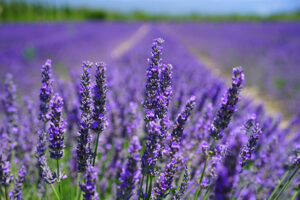 2. Lavender (Lavandula angustifolia): Grandmas Herbal Remedies Still Hold True
2. Lavender (Lavandula angustifolia): Grandmas Herbal Remedies Still Hold True
Lavender (Lavandula angustifolia) is a well-known and widely-used herb used in natural therapies for anxiety and stress management. This fragrant, purple-flowered plant is native to the Mediterranean region and has been used for centuries for its calming and relaxing properties, which can significantly help reduce anxiety symptoms and promote mental well-being.
The Science Behind Lavender’s Calming Effects
Lavender owes its calming effects to the presence of various bioactive compounds, such as linalool and linalyl acetate. These compounds have been shown to interact with the nervous system, enhancing the inhibitory action of the neurotransmitter GABA and reducing the activity of excitatory neurotransmitters like glutamate. As a result, lavender helps promote relaxation and reduce anxiety.
Recent clinical studies have demonstrated the efficacy of lavender in treating anxiety disorders. A randomized, double-blind study found that oral lavender oil capsules were as effective as the prescription medication paroxetine in reducing anxiety symptoms in patients with generalized anxiety disorder.5
Natural Ways to Use Lavender for Anxiety and Stress Relief
There are several natural ways to incorporate lavender into your daily routine to help alleviate anxiety and stress:
Essential oils: Lavender essential oil can be used in various ways, such as adding a few drops to a diffuser or an aromatherapy inhaler. Alternatively, mix it with a carrier oil, like sweet almond or jojoba oil, for a soothing massage. When using lavender essential oil, always choose a high-quality, therapeutic-grade product and follow the manufacturer’s instructions.
Teas: Drinking lavender tea is another way to enjoy the calming benefits of this herb. To make lavender tea, steep 1-2 teaspoons of dried lavender flowers in boiling water for 5-10 minutes. You can drink up to 2-3 cups of lavender tea per day to help reduce anxiety and promote relaxation.
Bath products: Adding lavender to your bath can create a relaxing and soothing atmosphere. Use lavender bath salts, bath bombs, or a few drops of essential oil to create a calming and fragrant bath experience.
Lavender sachets: Fill small fabric sachets with dried lavender flowers and place them around your home, in your car, or near your pillow to help promote a sense of calm and relaxation throughout the day.
Culinary uses: Lavender can also be used in cooking and baking to add a unique flavor and aroma to dishes. Lavender-infused honey, syrups, and baked goods can provide a subtle, calming effect when consumed in moderation.
Lavender is a popular and effective natural therapy for anxiety and stress relief due in part to its positive effect on the nervous system.6 With various natural ways to incorporate lavender into your routine, such as essential oils, teas, and bath products, you can harness the calming and relaxing properties of this fragrant herb to help manage your anxiety and promote overall well-being.
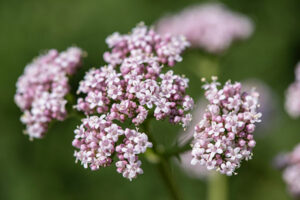 3. Valerian (Valeriana officinalis): A Time-Tested Herbal Solution for Anxiety Relief
3. Valerian (Valeriana officinalis): A Time-Tested Herbal Solution for Anxiety Relief
Many people ask the question: What herbs are good for anxiety? Well, ranking in at #3 on the list is Valerian. This perennial herb has long been used for its sedative and calming effects, making it one of the ideal natural ways to relieve anxiety.
The Science Behind Valerian’s Anxiolytic Effects
Valerian contains various bioactive compounds, including valerenic acid, valepotriates, and sesquiterpenes, which contribute to its anxiolytic and sedative effects. These compounds interact with the central nervous system, enhancing GABA activity and promoting relaxation, making valerian an effective option for anxiety relief.
Several clinical studies have demonstrated the efficacy of valerian in reducing anxiety and improving sleep quality.7,8 For instance, a randomized, double-blind, placebo-controlled trial found that valerian root extract significantly reduced anxiety symptoms in participants with generalized anxiety disorder (GAD).
Natural Ways to Use Valerian for Anxiety Relief
Valerian can be taken in various forms to help alleviate anxiety and promote relaxation:
Capsules: Valerian root capsules are a convenient and standardized way to take valerian. The typical dosage is 450-900 mg per day, taken 1-2 hours before bedtime or as recommended by a healthcare professional.
Teas: Valerian root tea can be made by steeping 2-3 grams of dried valerian root in boiling water for 10-15 minutes. Drinking valerian tea 1-2 hours before bedtime may help promote relaxation and improve sleep quality.
Tinctures: Valerian tinctures are a concentrated form of the herb and can be taken in small doses, usually 0.5-2 mL, 1-2 hours before bedtime. Be sure to follow the manufacturer’s instructions and consult with a healthcare professional before using a valerian tincture for anxiety relief.
Valerian may cause mild side effects such as dizziness, headache, and gastrointestinal issues in some individuals. Also of note, Valerian should not be used in combination with other sedatives, alcohol, or certain medications without consulting a healthcare professional.
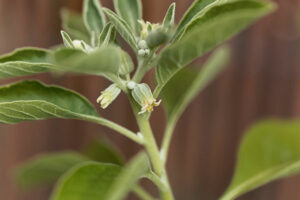 4. Ashwagandha: An Ancient Ayurvedic Solution for Anxiety Relief (Withania somnifera)
4. Ashwagandha: An Ancient Ayurvedic Solution for Anxiety Relief (Withania somnifera)
If you’re seeking answers on how to cure anxiety naturally, you might want to delve into the world of Ayurvedic medicine. This ancient Indian healing system offers various natural remedies for anxiety, stress, and other health concerns.
One such natural herbal treatment is ashwagandha (Withania somnifera), an adaptogenic herb known for its ability to help the body adapt to stress and reduce anxiety symptoms, making it one of the most potent natural ways to relieve anxiety.
The Science Behind Ashwagandha’s Anxiolytic Effects
Ashwagandha contains bioactive compounds called withanolides, which have been shown to exert anti-stress, anti-inflammatory, and antioxidant properties. These compounds help to modulate the body’s stress response by regulating the hypothalamic-pituitary-adrenal (HPA) axis, thereby reducing cortisol levels and promoting relaxation.9
Numerous clinical studies have demonstrated ashwagandha’s effectiveness in reducing anxiety and stress. For example, a randomized, double-blind, placebo-controlled trial found that participants who took an ashwagandha root extract experienced significant reductions in anxiety and stress levels compared to the placebo group.10
How to Use Ashwagandha for Natural Anxiety Relief
Ashwagandha can be taken in various forms, but the most common method is as a supplement in capsule form. The recommended dosage for ashwagandha is typically 300-500 mg per day, taken with meals or as advised by a healthcare professional. It is essential to use a standardized ashwagandha extract that contains a specific concentration of withanolides to ensure consistent potency and effectiveness.
With the right guidance and consistent use, ashwagandha may offer a natural, herbal solution to help alleviate anxiety and promote overall well-being.
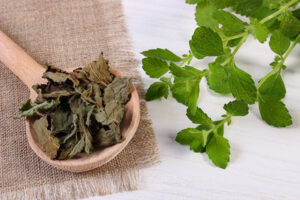 5. Lemon Balm: A Soothing Natural Therapy for Stress and Anxiety Relief (Melissa officinalis)
5. Lemon Balm: A Soothing Natural Therapy for Stress and Anxiety Relief (Melissa officinalis)
Lemon balm (Melissa officinalis) is a well-known herbal remedy for anxiety and stress. Its calming effects on the nervous system have made it a popular choice for those seeking to heal naturally from the adverse effects of stress and anxiety. As one of the more effective natural therapies and natural remedies, lemon balm has been used since ancient times to reduce anxiety, promote relaxation, and enhance overall well-being, making it one of the best home remedies for stress and anxiety.
The Science Behind Lemon Balm’s Calming Effects
Lemon balm contains various bioactive compounds, including rosmarinic acid, which is known for its antioxidant and anti-inflammatory properties. These compounds work together to exert anxiolytic and calming effects on the central nervous system. Clinical studies have demonstrated that lemon balm can significantly reduce anxiety symptoms and promote a sense of calm.11
Key findings from scientific research:
Lemon balm contains bioactive compounds with antioxidant and anti-inflammatory properties.
These compounds exert anxiolytic and calming effects on the central nervous system. Clinical studies have shown that lemon balm can significantly reduce anxiety symptoms and promote relaxation.12
How to Use Lemon Balm for Natural Stress and Anxiety Relief
Lemon balm can be consumed in various forms to help alleviate stress and anxiety. Here are some ways to incorporate lemon balm into your daily routine:
Tea: Steep 1-2 teaspoons of dried lemon balm leaves in hot water for 10-15 minutes, then strain and enjoy.
Capsules: Follow the manufacturer’s recommendations or consult with a healthcare professional for appropriate dosage guidelines.
Tinctures: Use as directed by the manufacturer or your healthcare professional.
The general recommended dosage for lemon balm is 300-500 mg per day.
Bonus Tips
In addition to this list of top 5 natural remedies, there are other ways to reduce anxiety. Remedy, natural or otherwise, will be tough to find without a change in lifestyle alongside your supplement regimen anxiety. Remedies, natural, synthetic, even therapy should be accompanied by physical exercise and other ways to relieve stress. Here are some additional tips and techniques to help manage anxiety and stress:
Holistic treatment for anxiety: Consider incorporating practices like yoga, meditation, or deep breathing exercises into your daily routine. These activities can help you relax and reduce anxiety levels.
How to reduce anxiety naturally: Try engaging in regular physical activity, as exercise has been shown to help decrease anxiety and improve mood.
Natural ways to reduce anxiety: Ensure you’re getting enough sleep each night, as lack of sleep can exacerbate anxiety symptoms.
Holistic treatments for anxiety: Consider making dietary changes to support overall mental health, such as consuming a balanced diet rich in whole foods and limiting caffeine and sugar intake.
Best natural remedy for anxiety and best natural remedies for anxiety: Reach out to a mental health professional who can help guide you in developing a personalized treatment plan, which may include therapy, medication, and lifestyle changes.
Natural way to treat anxiety: Establish a support network of friends, family, and professionals who can help you navigate your anxiety journey.
Best natural anxiety remedies: Consider incorporating mindfulness practices, such as journaling, gratitude exercises, or progressive muscle relaxation, to help you stay present and focused on the positive aspects of your life.
Anxiety relief herbs: Explore various herbal remedies and supplements, like those mentioned earlier, to find the best fit for your needs.
Stress home remedies: Create a calming environment in your home with relaxing scents, soft lighting, and calming music to help reduce stress levels.
Remedies for stress: Set realistic expectations for yourself and learn to say “no” when necessary to prevent feeling overwhelmed.
The Breakdown
Anxiety and stress are common issues faced by many individuals living fast paced lifestyles. Luckily, there are a variety of herbal stress remedies and other natural approaches that can provide relief.
By incorporating some of these options into your daily routine, you may find relief from your symptoms and improve your overall well-being. If you enjoyed this article, check out this one on medicinal leaves and herbal treatments and subscribe to our newsletter for new articles!
References
- Dhawan, K., Dhawan, S., & Sharma, A. (2004). Passiflora: a review update. Journal of Ethnopharmacology, 94(1), 1-23. https://doi.org/10.1016/j.jep.2004.05.021
- Akhondzadeh, S., Naghavi, H. R., Vazirian, M., Shayeganpour, A., Rashidi, H., & Khani, M. (2001). Passionflower in the treatment of generalized anxiety: a pilot double-blind randomized controlled trial with oxazepam. Journal of Clinical Pharmacy and Therapeutics, 26(5), 363-367. https://doi.org/10.1046/j.1365-2710.2001.00367.x
- Ngan, A., & Conduit, R. (2011). A double-blind, placebo-controlled investigation of the effects of Passiflora incarnata (passionflower) herbal tea on subjective sleep quality. Phytotherapy Research, 25(8), 1153-1159. https://onlinelibrary.wiley.com/doi/10.1002/ptr.3400
- Miroddi, M., Calapai, G., Navarra, M., Minciullo, P. L., & Gangemi, S. (2013). Passiflora incarnata L.: Ethnopharmacology, clinical application, safety and evaluation of clinical trials. Journal of Ethnopharmacology, 150(3), 791-804. https://doi.org/10.1016/j.jep.2013.09.047
- Koulivand, P. H., Khaleghi Ghadiri, M., & Gorji, A. (2013). Lavender and the nervous system. Evidence-Based Complementary and Alternative Medicine, 2013, 681304. https://doi.org/10.1155/2013/681304
- Kasper, S., Gastpar, M., Müller, W. E., Volz, H. P., Möller, H. J., Dienel, A., & Schläfke, S. (2010). Silexan, an orally administered Lavandula oil preparation, is effective in the treatment of ‘subsyndromal’ anxiety disorder: a randomized, double-blind, placebo-controlled trial. International Clinical Psychopharmacology, 25(5), 277-287. https://doi.org/10.1097/YIC.0b013e32833b3242
- Andreatini, R., Sartori, V. A., Seabra, M. L., & Leite, J. R. (2002). Effect of valepotriates (valerian extract) in generalized anxiety disorder: a randomized placebo-controlled pilot study. Phytotherapy Research, 16(7), 650-654. https://doi.org/10.1002/ptr.1027
- Houghton, P. J. (1999). The scientific basis for the reputed activity of Valerian. Journal of Pharmacy and Pharmacology, 51(5), 505-512. https://doi.org/10.1211/0022357991772799
- Lopresti, A. L., Smith, S. J., Malvi, H., & Kodgule, R. (2019). An investigation into the stress-relieving and pharmacological actions of an ashwagandha (Withania somnifera) extract: A randomized, double-blind, placebo-controlled study. Medicine, 98(37), e17186. https://doi.org/10.1097/MD.0000000000017186
- Chandrasekhar, K., Kapoor, J., & Anishetty, S. (2012). A prospective, randomized double-blind, placebo-controlled study of safety and efficacy of a high-concentration full-spectrum extract of ashwagandha root in reducing stress and anxiety in adults. Indian Journal of Psychological Medicine, 34(3), 255-262. https://doi.org/10.4103/0253-7176.106022
- Cases, J., Ibarra, A., Feuillère, N., Roller, M., & Sukkar, S. G. (2011). Pilot trial of Melissa officinalis L. leaf extract in the treatment of volunteers suffering from mild-to-moderate anxiety disorders and sleep disturbances. Mediterranean Journal of Nutrition and Metabolism, 4(3), 211-218. https://doi.org/10.1007/s12349-010-0045-4
- Kennedy, D. O., Wake, G., Savelev, S., Tildesley, N. T., Perry, E. K., Wesnes, K. A., & Scholey, A. B. (2003). Modulation of mood and cognitive performance following acute administration of single doses of Melissa officinalis (Lemon balm) with human CNS nicotinic and muscarinic receptor-binding properties. Neuropsychopharmacology, 28(10), 1871-1881. https://doi.org/10.1038/sj.npp.1300230
This article is for informational purposes only and is not intended as medical advice. Always consult your physician or a qualified healthcare provider before making any decisions about your health or changing your treatment plan.

